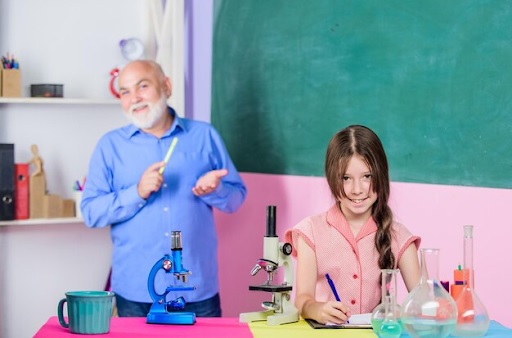Junior College (JC) Chemistry can be a challenging subject for many students in Singapore. The depth and breadth of content, coupled with the application of complex concepts, often require additional support beyond regular school hours. JC Chemistry tuition has become a popular option for students aiming to excel in their A-level examinations. This article explores the benefits of JC chem tuition, what to look for in a good tutor, and how to maximize the effectiveness of your tuition sessions.
The Importance of JC Chemistry Tuition
Chemistry at the JC level covers a wide range of topics, including physical chemistry, organic chemistry, inorganic chemistry, and analytical techniques. The curriculum is designed to build a strong foundation for further studies in science, engineering, and medicine. However, the fast-paced learning environment in JC often means that students may struggle to keep up with the material.
JC Chemistry tuition provides personalized support, helping students understand complex concepts, improve problem-solving skills, and build confidence. A good tutor can identify areas of weakness and tailor lessons to address these gaps, ensuring that students are well-prepared for their exams.
Benefits of JC Chemistry Tuition
- Personalized Learning: One of the primary advantages of tuition is the ability to receive personalized instruction. Unlike in a classroom setting, a tutor can focus on the specific needs of the student, providing targeted support and customized lesson plans.
- Clarification of Concepts: Chemistry concepts can be abstract and challenging to grasp. Tutors can provide clear explanations, practical examples, and step-by-step guidance to help students understand difficult topics.
- Exam Preparation: JC Chemistry tuition often includes intensive exam preparation, including practice papers, mock exams, and revision sessions. This focused preparation helps students familiarize themselves with the exam format and improve their time management skills.
- Improved Grades: With personalized attention and targeted support, students are more likely to see improvements in their grades. Tutors can help students develop effective study strategies, improve their problem-solving skills, and boost their confidence in tackling exam questions.
- Flexible Learning Pace: Tuition allows students to learn at their own pace. Whether a student needs to slow down to fully understand a topic or speed up to cover more material, a tutor can adjust the pace of lessons accordingly.
Finding the Right JC Chemistry Tutor
Choosing the right tutor is crucial to the success of tuition. Here are some factors to consider when selecting a JC Chemistry tutor:
- Qualifications and Experience: Look for a tutor with strong academic credentials and teaching experience in JC Chemistry. A tutor with a background in chemistry or a related field, and experience teaching JC students, will be better equipped to provide effective instruction.
- Teaching Style: Different tutors have different teaching styles. Some may focus on rote learning, while others emphasize conceptual understanding and application. Choose a tutor whose teaching style aligns with the student’s learning preferences.
- Track Record: A tutor’s track record can provide insights into their effectiveness. Look for testimonials, reviews, or recommendations from past students. A tutor with a history of helping students achieve high grades is likely to be a good choice.
- Availability and Location: Consider the tutor’s availability and location. Ensure that the tutor’s schedule aligns with the student’s availability and that the location is convenient for regular sessions. Online tuition is also an option for greater flexibility.
- Personal Connection: The student-tutor relationship is important for effective learning. A tutor who is approachable, patient, and able to build rapport with the student will create a positive learning environment.
Maximizing the Effectiveness of JC Chemistry Tuition
To get the most out of JC Chemistry tuition, students should take an active role in their learning. Here are some tips to maximize the effectiveness of tuition sessions:
- Set Clear Goals: Define specific academic goals at the outset. Whether it’s improving grades, mastering a particular topic, or preparing for exams, having clear objectives will help the tutor tailor the lessons to meet these goals.
- Prepare for Lessons: Come to each tuition session prepared. Review the material covered in school, identify areas of difficulty, and prepare questions to ask the tutor. This proactive approach will make the sessions more productive.
- Practice Regularly: Consistent practice is key to mastering JC Chemistry. Complete all assignments given by the tutor, work on practice papers, and review past exam questions. Regular practice helps reinforce learning and improves problem-solving skills.
- Seek Clarification: Don’t hesitate to ask questions during tuition sessions. If a concept is unclear, seek clarification from the tutor. Understanding the material thoroughly is crucial for success in JC Chemistry.
- Review and Reflect: After each session, review the material covered and reflect on what you have learned. Identify any remaining areas of difficulty and discuss them with your tutor in the next session.
- Stay Motivated: Stay motivated and maintain a positive attitude towards learning. Celebrate small achievements and progress, and keep the end goal in mind. A positive mindset will help you stay focused and committed to your studies.
Conclusion
JC Chemistry tuition can be a valuable resource for students aiming to excel in their A-level examinations. With personalized instruction, targeted support, and focused exam preparation, tuition can help students overcome challenges and achieve their academic goals. By choosing the right tutor and taking an active role in their learning, students can maximize the effectiveness of their tuition sessions and build a strong foundation in chemistry. Whether it’s mastering complex concepts, improving problem-solving skills, or boosting confidence, JC Chemistry tuition can pave the way for academic success and future opportunities in science-related fields.
Know More- How Would You Become a Certified Lifeguard? A Step-by-Step Guide



